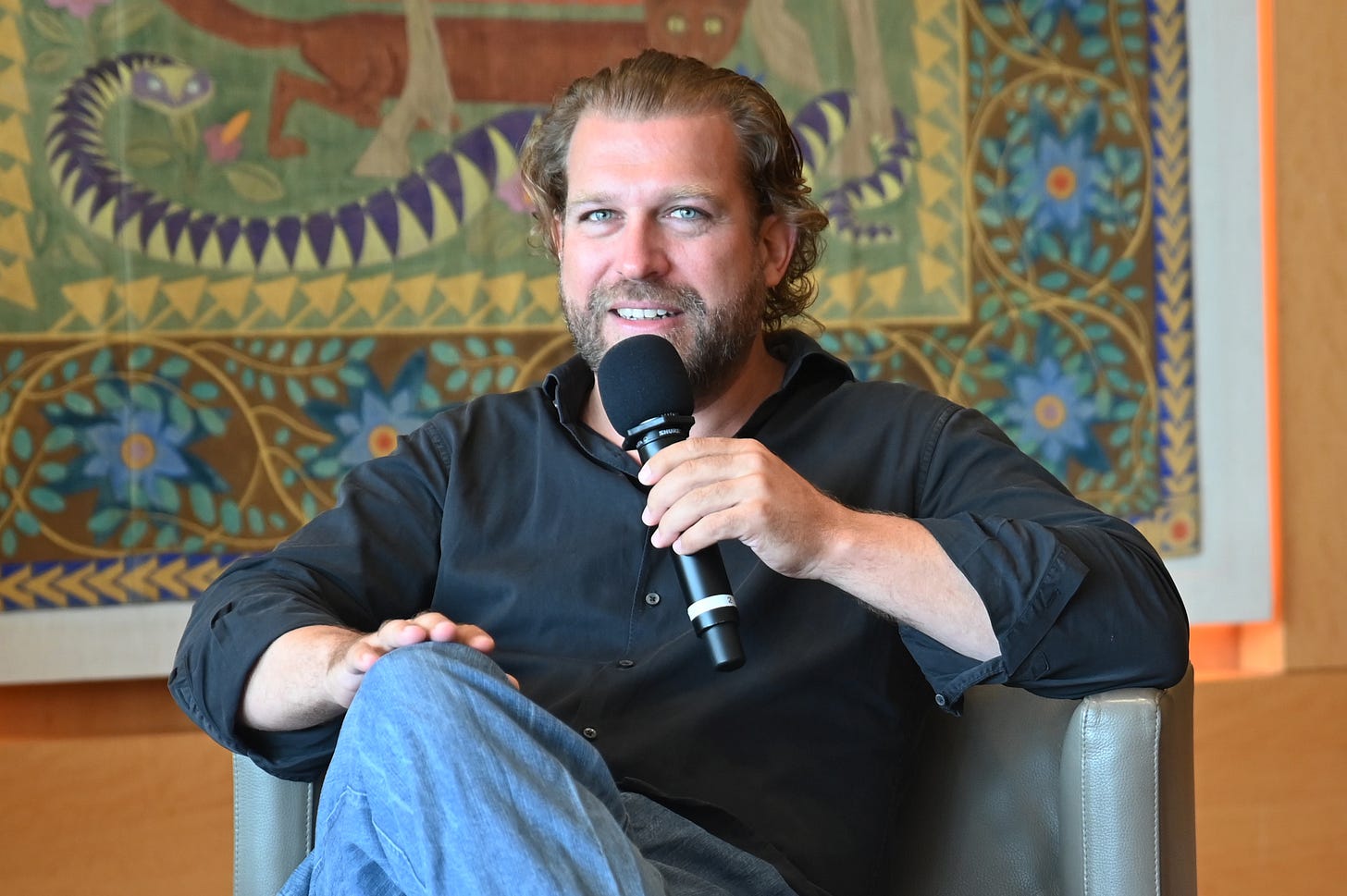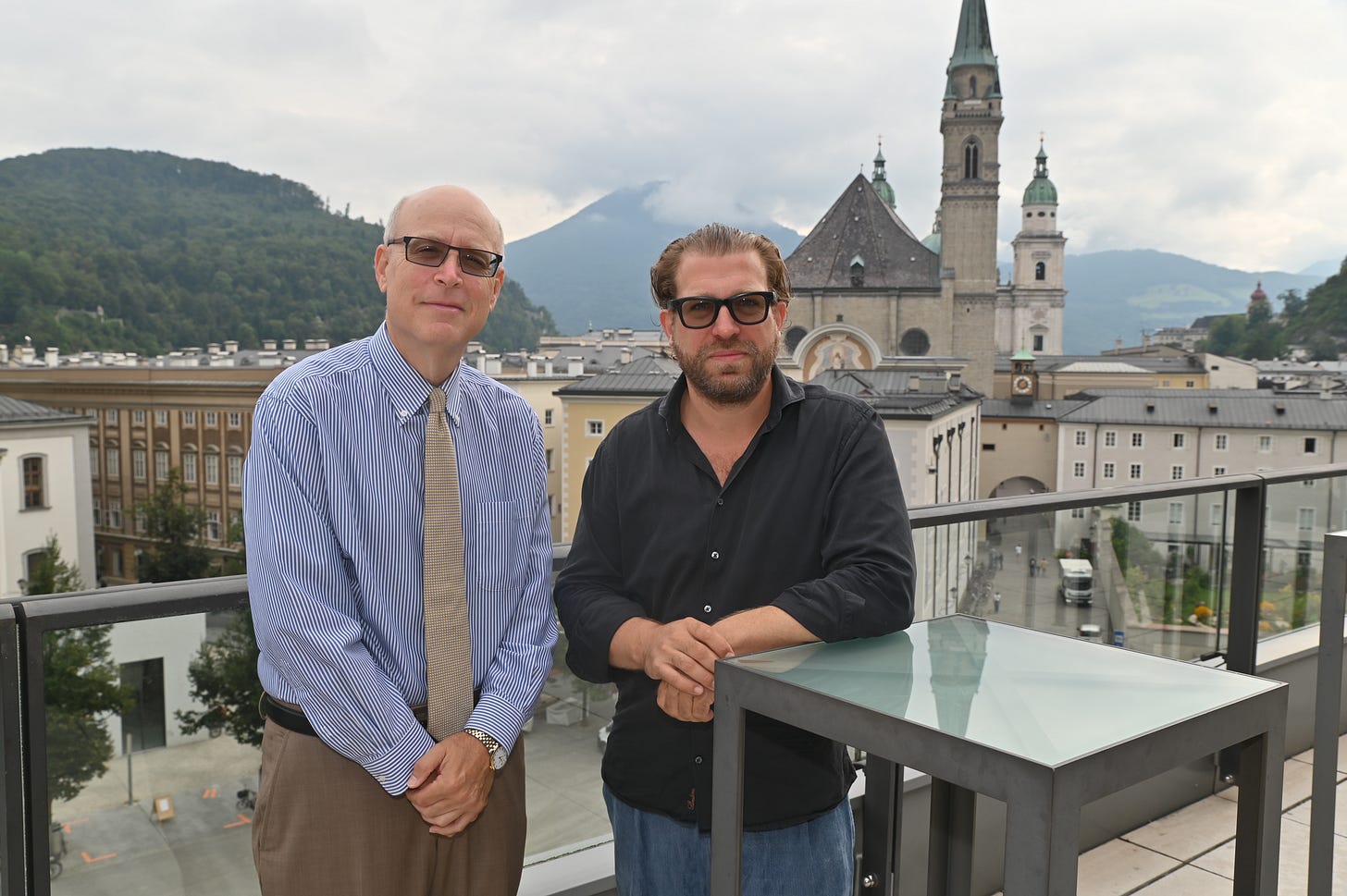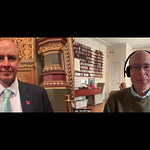Julian Prégardien is a tenor from Germany—despite his French-looking name. On his father’s side, he is Belgian, Italian, and Dutch. “A true European,” he says, a real mixture. One of his ancestors is Sweelinck, an important composer in pre-Bach days.
I talked with Prégardien at the Salzburg Festival, while conducting interviews for the Salzburg Festival Society. He was singing Mozart at the festival. And in this sit-down, I open with a question about Mozart.
Prégardien is fascinating on this composer, as on several others. I will paraphrase:
I think the challenge that comes with singing Mozart is that you better follow his idea and not exaggerate your own idea about what is in the music. Mozart is something that lies perfectly between subjectivity and objectivity of expression. To serve Mozart is quite a challenge: vocally, mentally, artistically, and as a human being.
Mozart can never be about you. It has to be about the composer and his ideas.
Prégardien is a leading Don Ottavio, a character in Mozart’s opera Don Giovanni, and many people think that Ottavio is a thankless part (despite two great arias). Ottavio is thought of as weak and bland.
Comments Julian Prégardien:
I would say the image of Don Ottavio reveals a problem of our modern society, because to say that a supportive man is weak is something we should have overcome in the 21st century.
Don Giovanni should not be adored, because he’s the bad guy. Don Ottavio’s the good guy. He is husband material.
Mozart and Da Ponte [his librettist] are holding up a mirror to society. They are saying, “I bet you like Don Giovanni more than you do Don Ottavio. You better think about that.”
Prégardien grew up in Limburg, a medieval town in Hesse. Limburg was spared bombing in World War II. Prégardien owns an apartment in a house built in the 15th century.
He was part of the boys’ choir in town, a choir co-founded by his grandfather. Interesting man, his grandfather. Owing to an accident, he had a wooden leg. He sold walking sticks. He met a woman who sold umbrellas and walking sticks, and she became his wife, Julian’s grandmother.
They had a son Christoph, Julian’s father—one of the greatest lyric tenors of our time.
Did Christoph teach Julian? He had the good sense to let the boy go his own way. Naturally, Christoph was an influence on Julian. He “idolized” his father, he tells us, and still does. But Julian is not a carbon copy. Each singer is his own man.
By the way, father and son don’t argue about who has the more beautiful voice. They agree: Christoph’s father, and Julian’s grandfather, had the most beautiful tenor voice of them all.

I ask Julian, “Did you listen to any pop singers growing up?” Oh, yes, many. He names some German singers, including Herbert Grönemeyer. There was also the Kelly Family. And boy bands, including NSYNC, Caught in the Act, and the Backstreet Boys. Prégardien also mentions Nirvana and Kurt Cobain.
A special treat is that the tenor sings a line or two of a few songs. Pop singers are lucky that Prégardien doesn’t encroach on their territory, professionally.
As he is moving on the subject of Mozart, he is moving—very moving—on the subject of Bach. He has sung Bach his entire life. He and Bach have been constant companions.
Prégardien says,
He is a miracle. He was a giver all of his life. It was never about him. He signed most of his music “Soli Deo gloria” [Glory to God alone]. The buildings that he can construct with his music are both human and divine.

We also talk about Schubert. And the fortunes and fashions of the music industry. At the end, I ask him to give me some of his favorite singers. He names quite an assortment.
Andreas Scholl, the countertenor. Thomas Hampson, the baritone. Bryn Terfel, the bass-baritone. (His Rodgers & Hammerstein album!) The sopranos Pia Davila, Sabine Devieilhe, Dorothee Mields, and Jeanine De Bique. And Frank Sinatra and Amy Winehouse.
And his father, Christoph.
On all of these people, and on our various subjects, Julian Prégardien is thoughtful and interesting. One can learn a lot from him. And simply enjoy him. I’ll stop typing now and let you listen.












